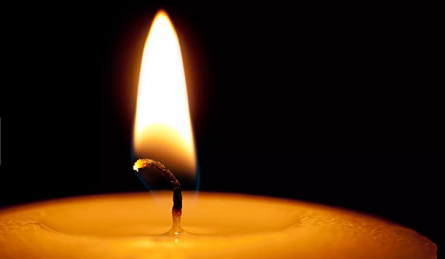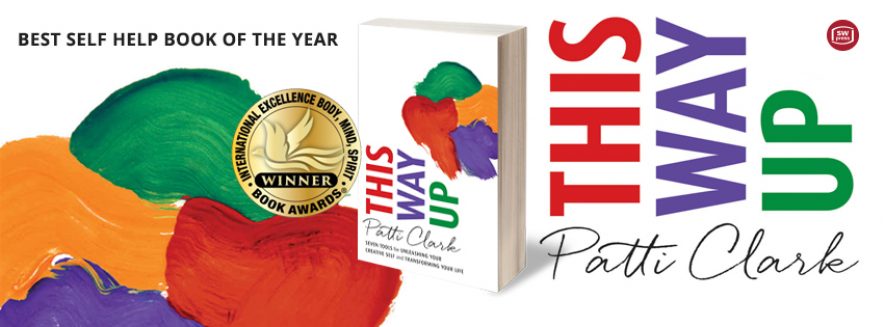“As a well-spent day brings happy sleep, so a life well spent brings happy death.”
– Leonardo da Vinci
_______________________________________________________________________________
Once again, I have so much to be grateful for, in terms of what my sons have taught me. This time, I am grateful that both of them pushed me to explore the wonders of podcasts. Of course I have listened to podcasts, I’ve even been interviewed on several, but it’s been a half-hearted effort. On their last trip home, over Christmas, they downloaded a podcast playing app and steered me in the direction of several podcasts that they enjoyed. And since then, I have been playing podcasts on every trip I take in my car. I’m hooked! Mind you, as most of you know that have been reading my blog for awhile, I’m an addict at heart, so everything I do, I often overdo! But at this point, I’m loving it and it doesn’t seem to be doing me any harm.

The first podcast that my sons turned me on to was an interview with Frank Ostaseski on a podcast called Waking Up with Sam Harris. But Actually, Tara Brach is much more my style, so I then listened to her interview with Ostaseski on her podcast, Tara Talks.
I was so impacted that I bought Ostaseski’s book, The Five Invitations. A wonderful book that I highly recommend.
In an article in Daily Good, Ostaseski describes his journey:
“Over the past thirty years, as the co-founder of the Zen Hospice Project, people who were dying generously invited me into their most vulnerable moments. They made it possible for me to get up close and personal with death. In the process, they taught me how to live. I distilled their wisdom into five heart lessons for living fully and without regret.”
The message in the book has five invitations to us from what Ostaseski has learned from people dying.
1. Don’t Wait.
2. Welcome Everything; Push Away Nothing
3. Bring Your Whole Self to the Experience
4. Find a Place of Rest in the Middle of Things
5. Cultivate “Don’t Know” Mind
The idea of the first invitation, Don’t Wait, seems obvious. If you are dying, you can’t wait to do things, there is an immediacy to everything. But this has a message to all of us:
“This idea can both frighten and inspire us. Yet, embracing the truth of life’s precariousness helps us to appreciate its preciousness. We stop wasting our lives on meaningless activities. We learn to not hold our opinions, our desires, and even our own identities so tightly. Instead of pinning our hopes on a better future, we focus on the present and being grateful for what we have in front of us right now. We say, “I love you” more often. We become kinder, more compassionate and more forgiving.”
When I think about the second invitation, Push Away Nothing, that feels very hard. My logical mind says, but what about the horrible stuff? I don’t want to welcome the bad stuff. Ostaseski explains though:
“In welcoming everything, we don’t have to like what’s arising or necessarily agree with it, but we need to be willing to meet it, to learn from it. The word welcome confronts us; it asks us to temporarily suspend our usual rush to judgment and to be open, to what is showing up at our front door. To receive it in the spirit of hospitality. At the deepest level, this invitation is asking us to cultivate a kind of fearless receptivity.”
Bring Your Whole Self to the Experience is a good invitation for me. I often hold back thinking I have nothing to offer here, I don’t know how to deal with this. I believe if I can’t contribute some kind of knowing to something, then I should not contribute. I know this is from ego, that I want to look good if I’m going to contribute. But Ostaseski explains gently:
“We all like to look good. We long to be seen as capable, strong, intelligent, sensitive, spiritual, or at least well-adjusted. Few of us want to be known for our helplessness, fear, anger, or ignorance. Yet more than once I have found an “undesirable” aspect of myself — one about which I previously had felt ashamed — to be the very quality that allowed me to meet another person’s suffering with compassion instead of fear or pity. It is not only our expertise, but exploration of our own suffering that enables us to build an empathetic bridge and be of real assistance to others. To be whole, we need to include and connect all parts of ourselves. Wholeness does not mean perfection. It means no part left out.”
The fourth invitation, Find a Place of Rest in the Middle of Things, is a wonderful reminder for all of us I think. After listening to the podcast with Tara Brach, I downloaded another app to help remind me to find a place of rest in the middle of thing. The app, Insight Timer, has meditations on my phone to help me find rest in the middle of things, to remind me and aid me to rest.

And the fifth invitation, Cultivate “Don’t Know” Mind is a Zen flavored invite, one that describes a mind that’s open and receptive, one that is not limited by agendas, roles, and expectations.
“It is free to discover. When we are filled with knowing, when our mind is made up, it narrows our vision and limits our capacity to act. We only see what our knowing allows us to see. We don’t abandon our knowledge — it’s always there in the background should we need it — but we let go of fixed ideas. We let go of control. The night before my open-heart surgery, my 26-year-old son Gabe and I had a tender conversation. Our sharing was filled with reminiscing, kindness, and laughter. At one point, Gabe became quite serious and asked, “Dad, are you going to live through this surgery?” Now I love my son beyond words, and like any father, I wanted to reassure him that I would be just fine. I felt into my experience before answering. Then I heard myself say, “I’m not taking sides.” My answer surprised us both. What I meant was that I wasn’t taking sides with life or death. Either way, I trusted that everything would be okay. I don’t know where the words came from; they spilled from me without censorship. I wasn’t trying to appear sage or to be a good Buddhist. Yet we both were reassured by my response. I think it was because we knew we were in the presence of the truth spoken with love.”
These five invitations are a gift to all of us, supportive in our life. They invite us to continue to explore and understand what it means to be alive now; not just to cope with death, but to live. And I whole heartedly agree with Ostaseski, they are relevant guides to living with integrity. Yes, we need to live these invitations, to be truly understood, they need to be lived and realized through action. They indeed are “five invitations for you to be fully present for every aspect of your life.”
The conversation with Tara Brach and Frank Ostaseski is truly inspirational, and I invite you to take the time to watch it now.

Dear Patti…thank you for the thoughtful invitation to explore and possibly accept THE FIVE INVITATIONS. As always, your blog gently encourages exploration with an open mind and open heart….which oddly enough seems to encourage more fearless discovery of the critical fear based, deeply imprinted beliefs that shape how we respond to life (and death)…our reservations to the deep embrace of life you so often describe in your shared messages. I have often found that my old ideas limit my ability to respond creatively, imaginatively to my life until I have deconstructed them. It is not possible to think outside the box until we dismantle the box and discover there is an outside, a beyond, a more no longer limited by our own beliefs. So often, your blogs encourage readers to be surprised by life, and that delights me. I have been so blessed to explore these wonderful opportunities for discovery by the years I have spent as an NICU volunteer and an HIV/AIDS hospice volunteer. Those privileges to bear witness make my recovery and the work I do today possible. Thanks again for sharing your compass.
LikeLiked by 1 person
Oh Scott, bless you once again for your wonderful words. Not just because they make me feel good, but because they are so graceful and grace-filled. Your eloquent writing and sculpting with words just makes my heart sing. Thank you for sharing your words and your wisdom once again.
LikeLike
I so agree with these 5 axioms and absolutely love the Leonardo da Vinci quote at the top of the piece as that is exactly how I want to live my life ie fully achieving all I want to achieve. Thanks for following my blog.
LikeLiked by 1 person
Yes me too, so agree. Thanks for taking the time to comment Caroline, I appreciate it.
LikeLike
Scott – are you familiar with Ostaseski? I do believe you would love him! After reading what you wrote about your own journey as an NICU volunteer and an HIV/AIDS hospice volunteer, I do believe you would resonate quite closely with Ostaseski. If you haven’t listened to him speak nor read about him, you can read about him here.
https://www.mettainstitute.org/Fbio.html
I do believe you are two birds of a feather.
LikeLike
Thank you for the additional focus. I am aware of Frank only through the Bill Moyer series which fascinated me. I will explore further. I was ‘informed’ to a great degree by the work and writings of Henri Nouwen , another wonderfully generous servant of those challenged by life and dying. When I was still teaching in the 80’s, my dearest friend Nello’s partner and some of our colleagues were early sufferers of AIDS physically and socially, and that is when I began to gather information and, in a sense, impose awareness at the high school level. That commitment continues here in Oregon both in terms of time and resources. I look forward to renewed energy by listening to Ostaseski. THIS WAY UP continues to be a rich gift.
LikeLiked by 1 person
Thank you so much Scott. I have tears in my eyes at the moment, a layer of judgement and ‘teen frustration’ stripped away. I was carrying really old stuff around a few of my old teachers, one of whom was my HS senior AP English teacher. Your words above melted me and I thank you. Always so grateful for old shit to be melted and burned away. Your simple words have done that for me today and I am filled with gratitude.
LikeLike
Watched and posted on FB a few lengthy conversations with Frank Ostaseski. Good stuff.
LikeLiked by 1 person
Thank you
LikeLike
Separate conversation/allears…interested in hearing more about your HS experience
LikeLiked by 1 person
Would love to tell you about it. And thank you for cracking me open. Always wonderful. Email me at patti@thiswayupbook.com and I’ll tell you more. Thank you Scott.
LikeLike
Pingback: Five Invitations | This Way Up